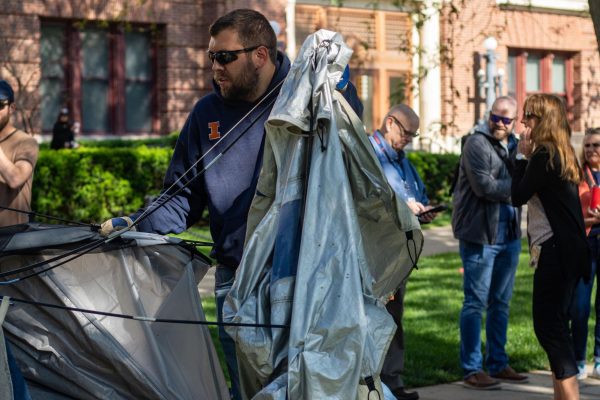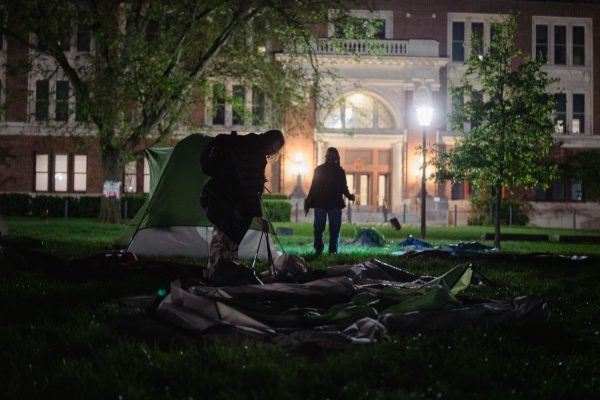Bills punish negligence
March 28, 2007
On Sept. 8, 2006, a distracted driver downloading ringtones to her cell phone hit and killed University student Matthew Wilhelm at the age of 25. However, with no laws specifying what distracted driving was, the driver could only be charged with improper lane usage and a $1,000 fine.
Seven months later, with Wilhelm’s family working with Illinois state representatives and senators, distracted driving may be accurately defined and enforced.
In response to Wilhelm’s death, four bills are currently circulating through the Illinois General Assembly. Deputy Republican Leader Bill Black, R-Danville, sponsors three of these bills. House Bill 1382 makes negligent vehicular homicide a Class A misdemeanor; House Bill 663 revokes the license of drivers whose traffic violations result in someone’s death; and House Joint Resolution 22 creates a task force to properly define what is considered distracted driving.
State Sen. Mike Frerichs, D-52nd, sponsors the fourth bill, Senate Bill 1557, which requires driver education classes to include a focus on distracted driving in their curriculum.
The problem with Illinois vehicle laws is that they are outdated, Black said.
Get The Daily Illini in your inbox!
“These things weren’t around eight or nine years ago,” Black said. “The vehicle code is way behind the technology curve.”
Black and Frerichs are working together to get these four laws passed. They hope their actions will reduce the number of casualties from distracted driving and make drivers more aware of the consequences of their actions, Black said.
Laws that punish negligent driving and cell phone usage are already in effect in 35 other states, the Wilhelms say. And while Illinois has a cell phone law in effect, it does not go far enough, said Cindy McAvoy, Wilhelm’s aunt.
“Chicago has a ban on cell phones, but it’s not enforced unless it’s part of an accident,” McAvoy said.
Both Black and McAvoy believe that educating inexperienced drivers at an early age about negligent driving will help prevent accidents like Wilhelm’s from reoccurring.
“I don’t want other families to go through what our family has gone through,” McAvoy said. “Matt had so much to offer, but he didn’t have the opportunity.”
With McAvoy and her husband giving oral testimonies to the Illinois Senate and House, all four bills have earned positive feedback. On March 15, Frerichs’ bill passed unanimously through the Senate and is now awaiting hearing in the House.
Wilhelm’s parents, Chuck and Gloria Wilhelm, also fight to pass these laws. They started a group, the Matt’s Law Coalition, and have put up a Web site that offers tributes to Matt with updates about the progress of these bills going through legislation. They believe the key to reducing the amount of distracted driving incidents starts in the classrooms.
“My husband and I went into Champaign schools and students have been very receptive,” Gloria Wilhelm said. “It’s going to make a real difference.”
Though Matt Wilhelm’s life was tragically cut short, he continues to live on through the memories of his family, and soon, he may live on through Illinois legislation in HB 1382, which the Wilhelms have dubbed “Matt’s Law.”
“When you meet the Wilhelm family, you realize that he did everything right,” Black said. “But if someone isn’t paying attention, it can still have tragic results…It didn’t have to happen.”






